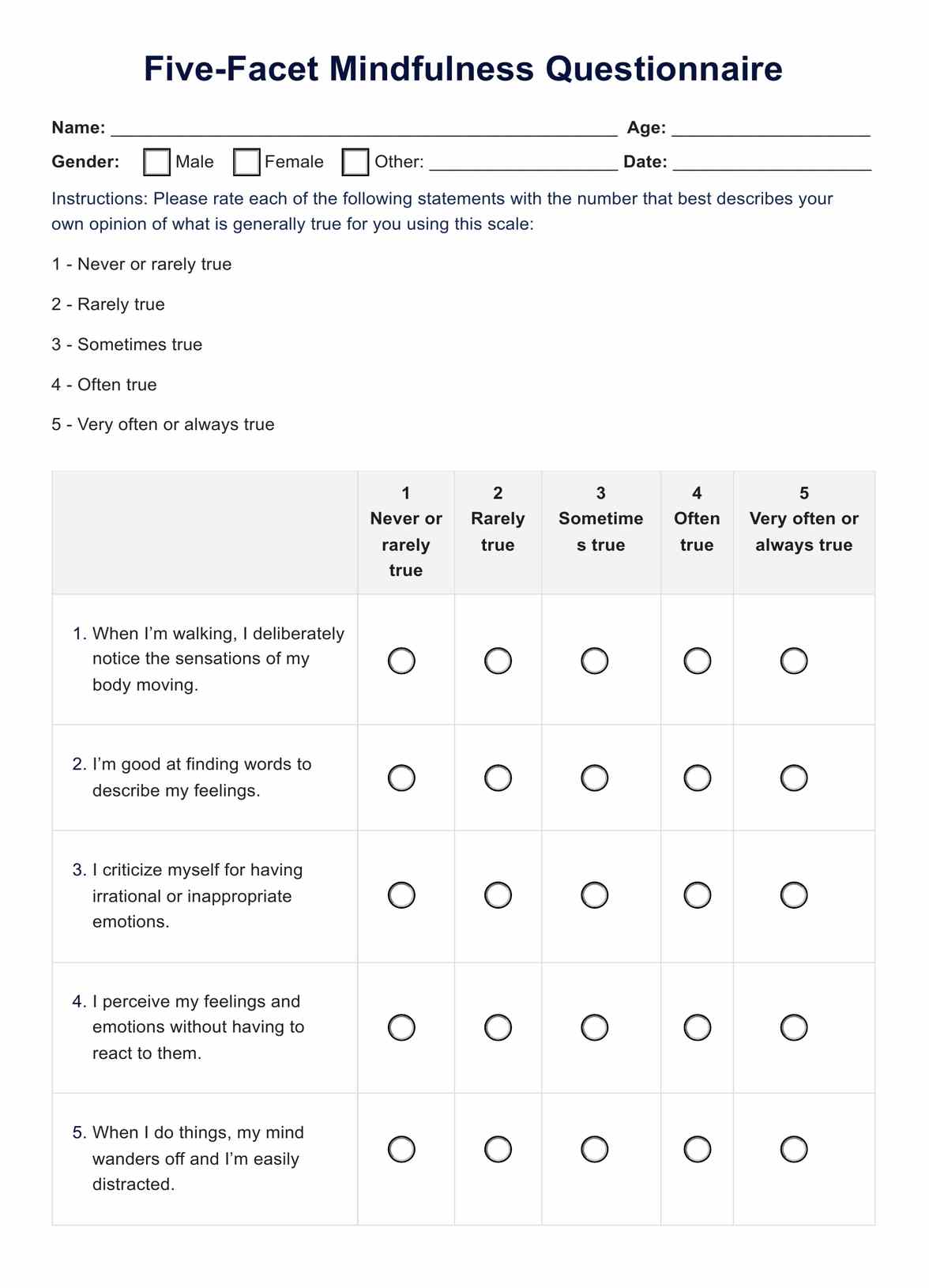Yes, the FFMQ has been shown to be a reliable and valid measure of mindfulness. Multiple studies have demonstrated the questionnaire's internal consistency, test-retest reliability, and construct validity.

Five-Facet Mindfulness Questionnaire
Measure mindfulness with an evidence-based tool to gain clients' mindfulness profiles and improve clinical outcomes through tailored interventions.
Five-Facet Mindfulness Questionnaire Template
Commonly asked questions
Mindfulness-based interventions have been found to be beneficial for individuals with a range of mental health conditions, including recurrent major depressive disorder and chronic stress. Cultivating present-moment awareness and acceptance helps address distressing thoughts and subjective feelings that could be overwhelming, especially among clinically depressed individuals.
Practicing a mindfulness based intervention can be helpful part of our daily routine. Some of these exercises could include mindfulness meditation, breath awareness, body moving, and mindful eating.
EHR and practice management software
Get started for free
*No credit card required
Free
$0/usd
Unlimited clients
Telehealth
1GB of storage
Client portal text
Automated billing and online payments











